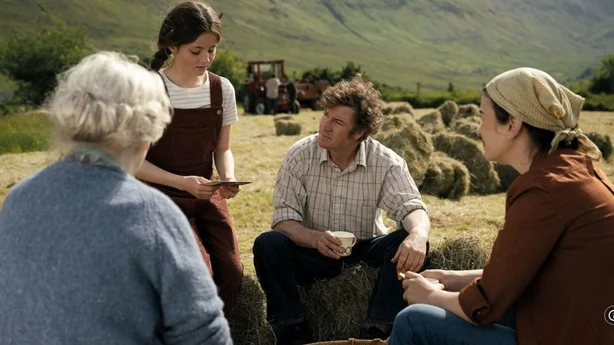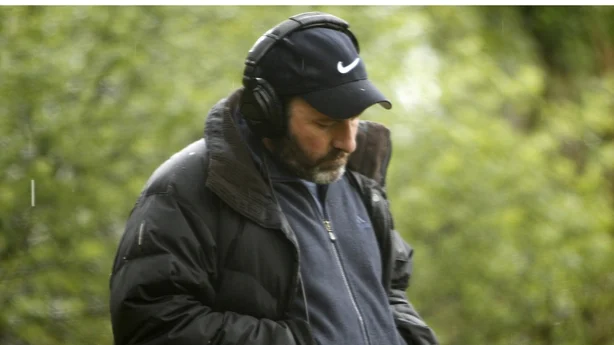Winner of Best Film at the recent Irish Film and Television Awards, That They May Face the Rising Sun has just gone on general release, accompanied by rave reviews. Filmed in Co Galway, it won Best Irish Film at the Dublin International Film Festival in March and received its world premiere at the London International Film Festival last year.
That They May Face the Rising Sun stars Barry Ward and Anna Bederke as Joe and Kate Ruttledge, who leave late Seventies/early Eighties London for the rural Ireland of Joe's childhood. The cast also includes Seán McGinley, Lalor Roddy, John Olohan, Brendan Conroy, Declan Conlon, Ruth McCabe, and screen newcomer Phillip Dolan - making his acting debut in his mid-seventies.
Cork man Collins, whose other works include the acclaimed films Song of Granite and Silence, and the television documentary John McGahern: A Private World, said his big move into feature drama has been a step up in terms of exposure. As well as directing, he adapted That They May Face the Rising Sun for the screen with co-writer Éamon Little.
"There's more people talking about it than my films normally," Collins said. "Maybe I'm a little bit under the radar usually, whereas this is much more high-profile.

"A lot of that has to do with the material, I suppose. It's to do with John McGahern. There's such respect for writing in Ireland that if there's something adapted from a John McGahern book, it becomes something that people talk about.
"The cast has a huge influence on that as well. People like Seán McGinley, Barry Ward, and Ruth McCabe - people know them and have a great regard for them and kind of fondness for them. All of those things are feeding into it, in terms of making it more visible. I'm definitely getting more attention than I'm used to!"
First published in 2002, That They May Face the Rising Sun was John McGahern's final novel before his death in 2006 at 71. Collins had long thought about turning the book into a film.
"I did say to John it was my favourite of his books along with the collected short stories," Collins recalled of their time working on the 2005 documentary John McGahern: A Private World.
"I loved the book, but I don't know if I would've had the confidence to make it at that time. It was 2015 before I actually put it into action, but I was thinking of it for a long time. I thought that I wouldn't have the experience to do it at that time, so I wanted to make more work before I'd go to it.
"I kind of felt that if I didn't do it, I'm not sure that anybody else was going to do it."
Looking back on the experience of making the film, Collins said it is something to treasure.

"Barry Ward described it as like being in the Gaeltacht - just the craic and the great conversations and discussions that you'd have over the six or seven weeks that we were shooting.
"It was a very enjoyable experience up there in Clonbur (An Fhairche) and Corr na Móna, Loch Na Fooey. It was special."
Now, That They May Face the Rising Sun is in cinemas. Collins hopes that word of mouth will help the film repeat the Irish box office success of the likes of An Cailín Ciúin (The Quiet Girl), The Banshees of Inisherin, and Belfast.
"Every single screening has been positive," he said. "If it does well in the Irish cinemas, I'd be very happy about that, obviously. And I'd be kind of thinking, 'God, if it doesn't do well, what do you have to do?!'"
"I'm still finding new things in it, which is amazing, really," he concluded. "It changes depending on the room. It changes in terms of my own form when I'm looking at it. It's a different film nearly every time. I do joke about the fact that it's better the second time - but I genuinely mean that."
That They May Face the Rising Sun is in cinemas nationwide now.
Click here for more movie news.
Disclaimer: The copyright of this article belongs to the original author. Reposting this article is solely for the purpose of information dissemination and does not constitute any investment advice. If there is any infringement, please contact us immediately. We will make corrections or deletions as necessary. Thank you.






